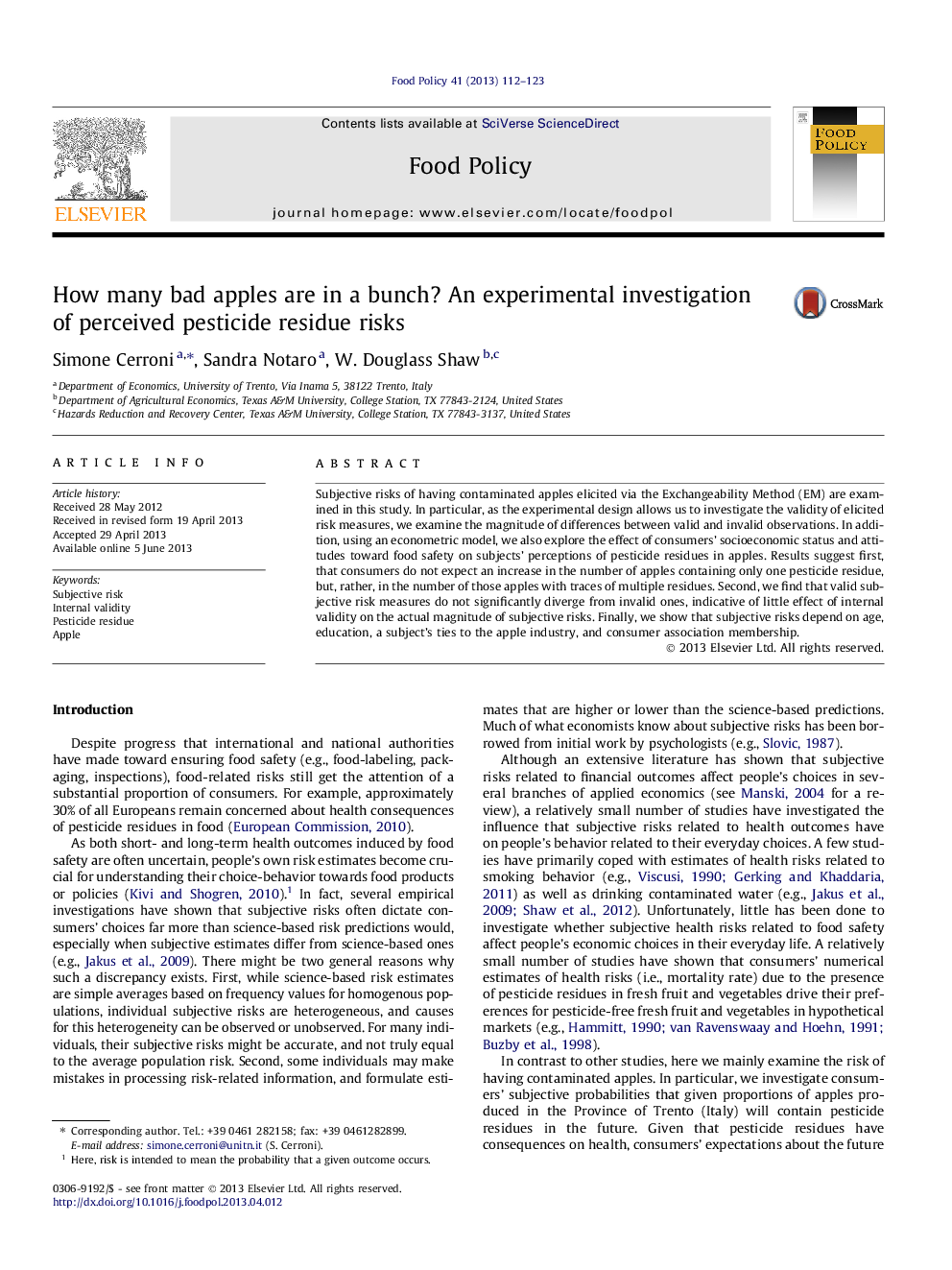| Article ID | Journal | Published Year | Pages | File Type |
|---|---|---|---|---|
| 5070645 | Food Policy | 2013 | 12 Pages |
Abstract
Subjective risks of having contaminated apples elicited via the Exchangeability Method (EM) are examined in this study. In particular, as the experimental design allows us to investigate the validity of elicited risk measures, we examine the magnitude of differences between valid and invalid observations. In addition, using an econometric model, we also explore the effect of consumers' socioeconomic status and attitudes toward food safety on subjects' perceptions of pesticide residues in apples. Results suggest first, that consumers do not expect an increase in the number of apples containing only one pesticide residue, but, rather, in the number of those apples with traces of multiple residues. Second, we find that valid subjective risk measures do not significantly diverge from invalid ones, indicative of little effect of internal validity on the actual magnitude of subjective risks. Finally, we show that subjective risks depend on age, education, a subject's ties to the apple industry, and consumer association membership.
Related Topics
Life Sciences
Agricultural and Biological Sciences
Food Science
Authors
Simone Cerroni, Sandra Notaro, W. Douglass Shaw,
